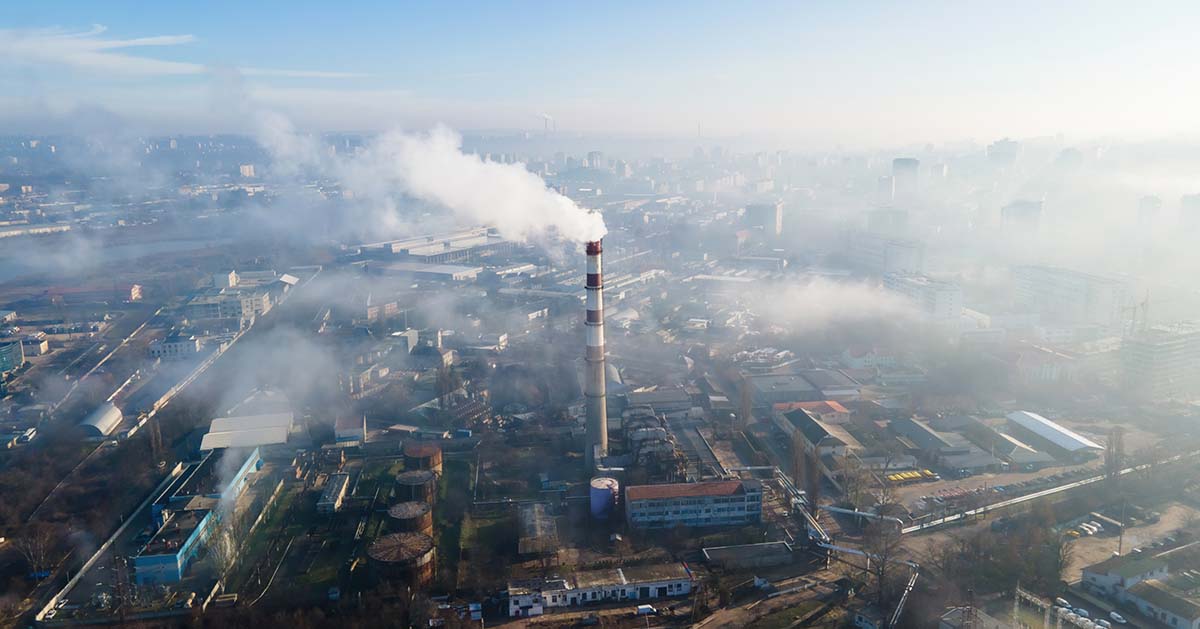Shams Power: The Environmental Benefits of Using Solar Panels
Pakistan, like many other countries, is facing significant environmental challenges due to its reliance on fossil fuels for energy production. The industrial sector, a vital electricity consumer, contributes to environmental degradation. However, there is hope on the horizon through solar panels. Solar energy has gained traction recently as a clean and sustainable alternative to conventional energy sources. This blog will explore the environmental benefits of using solar panels in Pakistan's industrial sector.
Reduction in Greenhouse Gas Emissions
One of the most significant environmental benefits of using solar panels in Pakistan's industrial sector is the substantial reduction in greenhouse gas emissions. Traditional industrial processes rely heavily on coal and natural gas, which release harmful emissions such as carbon dioxide (CO2), methane (CH4), and nitrous oxide (N2O). These gases are significant contributors to global warming and climate change.
By switching to solar energy, industries can drastically reduce their carbon footprint. Solar panels harness the power of the sun to generate electricity, producing zero direct emissions. This shift away from fossil fuels can help Pakistan make significant progress in meeting its climate goals and commitments, such as those outlined in the Paris Agreement.
Improved Air Quality
The burning of fossil fuels not only emits greenhouse gases but also releases harmful air pollutants into the atmosphere. In Pakistan, industries are a significant source of air pollution, which poses severe health risks to the population. Solar panels generate electricity without combustion, improving air quality and reducing respiratory problems for nearby communities.
Reducing air pollution can also benefit the environment by decreasing the formation of ground-level ozone and particulate matter, adversely affecting ecosystems and human health.
Conservation of Water Resources
Industrial processes often require large quantities of water for cooling and other purposes. Traditional power plants, particularly those fueled by coal or natural gas, consume substantial water for cooling and steam production. In a water-scarce country like Pakistan, this can strain local water resources and ecosystems.
Solar panels do not require water for operation, making them a sustainable choice for industrial electricity generation. By transitioning to solar energy, industries can help conserve precious freshwater resources, reduce the strain on aquifers, and promote responsible water management.
Minimization of Land Use
Solar panels are a versatile technology that can be installed on various surfaces, including rooftops and open fields. This versatility allows industries to utilize otherwise unused or underutilized land for energy generation, minimizing the need for additional land use. This is particularly advantageous in a densely populated country like Pakistan as it helps protect natural habitats and agricultural lands from urban sprawl.
By efficiently using existing infrastructure and land, solar panels contribute to preserving biodiversity and ecosystems, which are essential for a healthy environment.
Energy Independence
Pakistan, like many countries, faces energy security and supply reliability challenges. Solar panels offer an opportunity for industries to become more energy-independent. By generating electricity on-site, enterprises can reduce their reliance on centralized power grids and stabilize their energy supply, especially in remote or underserved areas.
This independence enhances business continuity and reduces the environmental impact associated with transporting energy over long distances, which can result in energy losses and increased greenhouse gas emissions.
Long-Term Sustainability
Solar panels have a long lifespan, typically 25 to 30 years or more. This longevity ensures a stable and sustainable source of clean energy for the industrial sector over an extended period. The durability of solar panels also reduces the need for frequent replacements, thereby decreasing the environmental impact associated with manufacturing and disposing of solar panels.
Additionally, advancements in solar panel technology and ongoing research into materials and efficiency improvements continue to make solar energy an increasingly sustainable option for the future.
Reduced Noise Pollution
Traditional power generation methods, such as diesel generators or coal-fired power plants, produce noise pollution, disrupting local communities and ecosystems. In contrast, solar panels operate silently, contributing to quieter and more peaceful surroundings. This noise pollution reduction can enhance nearby residents' well-being and reduce stress on local wildlife.
Lower Energy Transmission Losses
When electricity is transmitted over long distances from centralized power plants to industrial facilities, some energy is lost as heat due to resistance in power lines—this energy loss results in increased energy consumption and higher greenhouse gas emissions. Solar panels generate electricity on-site, minimizing the need for long-distance energy transmission and reducing energy losses, making the industrial sector more energy-efficient and environmentally friendly.
Job Creation and Economic Growth
The solar industry offers significant potential for job creation and economic growth. The installation, maintenance, and operation of solar panels create employment opportunities, particularly in rural areas where industries may be located. A thriving solar industry can stimulate local economies, reduce poverty, and provide additional resources for environmental conservation efforts.
Sustainable Resource Management
Solar energy relies on a virtually infinite and sustainable resource—the sun. Unlike fossil fuels, which are finite and subject to price volatility and geopolitical conflicts, the sun's energy is freely available and accessible to all. By harnessing this abundant resource, the industrial sector in Pakistan can ensure a stable and sustainable energy supply, reducing its vulnerability to external energy supply disruptions.
Technological Advancements and Innovation
Investments in solar technology and research can drive innovation and the development of more efficient and environmentally friendly energy solutions. As the demand for solar panels increases, it incentivizes the industry to improve solar panel efficiency, reduce manufacturing costs, and find innovative ways to store and distribute solar energy. These advancements benefit the industrial sector, the broader energy landscape, and environmental sustainability.
Summary
The environmental benefits of using solar panels in Pakistan's industrial sector cannot be overstated. From reducing greenhouse gas emissions and improving air quality to conserving water resources and minimizing land use, solar energy presents a compelling case for sustainability and environmental responsibility. By embracing solar power, Pakistan's industries can reduce their environmental impact and contribute to a greener, healthier, and more sustainable future. As solar technology advances, it is becoming an even more attractive and accessible option for businesses looking to make a positive environmental impact while securing their energy needs.
.jpg)



.jpg)

Comments
Post a Comment